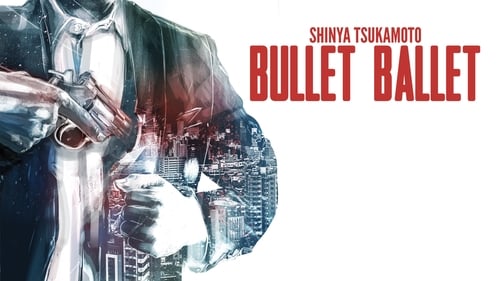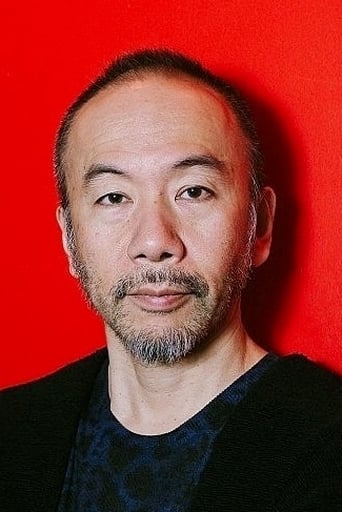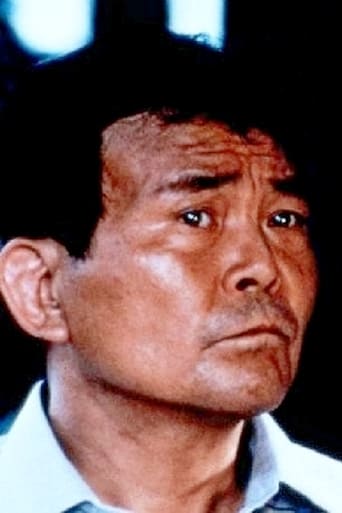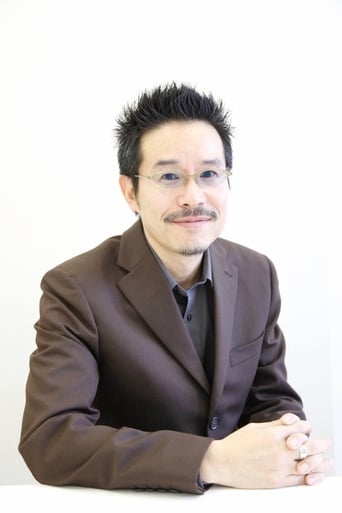K_Todorov
A visually stunning experiment in motion picture storytelling Shynia Tsukamoto's "Bullet Ballet" is a semi-revenge tale, semi-philosophical examination of the human condition. It explores themes and ideas concerning both the moral and social collapse of the modern man. As his earlier works such as "Tetsuo" and "Tokyo Fist" Tsukamoto uses the visual representation, the composition of individual scenes, minimalist colour palette, in this case a wonderfully sharp contrast between black and white, to express his ideas rather than just bombarding us with excessive amounts of expository dialogue. From the opening Goda (Shinya Tsukamoto) seems content with his life. He has a nice job working as a commercial director, has a long term girlfriend, and at the moment he is sitting at a table apparently drinking. The phone rings, its his girlfriend. They have a nice little chat, and Goda seems pleased, and why shouldn't he be, everything is alright. The conversation ends, Goda returns home and finds his girlfriend dead. She killed herself. She killed herself with a gun. Goda doesn't understand why, everything was alright, just a minute ago they were talking on the phone and now she killed herself. She killed herself with a gun. Goda is lost. He is standing in front of an old mirror in a old room, drops of water violently hitting a half-dead cockroach on the floor, Goda raises his hand, as if a gun, he aims at his reflection, tense, and pulls the imaginary trigger three times. Titles roll "Bullet Ballet", a dance of death. A dance of death, is the easiest way to describe the movie itself, but not in the usual way mind you. Bullet Ballet is more concerned with its characters and their lack of… connection, to put it bluntly, with the world, as Goda becomes obsessed with his girlfriend's death he tries to acquire the same gun with which she shot herself. Meanwhile he meets up with this girl he once helped, and gets in trouble with some guys from the gang she's in. The girl,Chisato(Kirina Mano), is on first impression simply suicidal, but that is just first impression. Goda's obsession grows, hardened by a burning desire for revenge against the gang, he sets out to make his own gun. And then it hits us, the reality of the situation, just hints at first, but even so it is becoming clear what is happening to this man. The gun, you see, is simply a metaphor, and of course it is a metaphor for death. He wants to understand his girlfriend's death, but he is losing himself in the process. He is losing his connection to life. Reason for being? He has none. And as the story slowly rolls forward, there is this impression that the dance of death is really the idea of facing death, witnessing death, surviving death, and then being reborn again. This idea comes the observation of the relationship between Goda and Chisato, the two characters obviously seem connected by their disconnection from the outside world. They understand each other. In a way they are one character split in two, with each segment providing hints to the overall motivation of the two. Chisato provides proof that Goda is dancing with death like she is, while Goda's past hints to a traumatic experience that lead Chisato to her current disposition. The final scene is the catharsis of the story, when the two characters finally experience all the chaos, finally witnessing all the death, seeing its effect on others, are free from their emotional blockage. Shinya Tsukamoto wrote, directed and produced "Bullet Ballet". He was also in charge of lightning, set design … and played a leading role. The man, much like his Tetsuo is a machine, a one man film crew. Chu Ishikawa, as usual, does the soundtrack and what a soundtrack it is, as percussive industrial music hits you like a jackhammer in some of the more dark scenes. While a gentler, more depressing, yet nevertheless more optimistic tune is composed for the film's ending scene. Beyond all the horror of death, beyond all the disturbing scenes of violence, beyond the sociopathic behavior, "Bullet Ballet" shines with its search for humanity at the darkest places, at the darkest moments, at the darkest times.
davidevoid
This movie is rather underrated i feel.This is the third movie i've seen by the director, the first being Snake of June and the second being Tetsuo: The Iron Man.I'd say this film is better than those two films, although i very much like those two films i feel this one blows them out of the water in a lot of respects.It's a much darker vision than Tetsuo, it's really full of dread this film. So that may put some off but it's a really interesting film and is amazingly directed and for the most part i feel it's really well acted.For me this movie is like the two other Shinya Tsukamoto films i've seen mixed with Ichi The Killer sort of things. There are a lot of things in here that it seems Miike Takashi knowingly used in Ichi The Killer, of which Shinya Tsukamoto stars.Yeah, a confusing and disjointed film and a film of two or maybe even three parts but a really interesting watch and the context and the interaction of the characters is excellent.I'd say this film is very worth seeing indeed.
CelluloidRehab
Shinya Tsukamoto (the director) takes up the lead role, Goda. Goda seems to be your average guy. On the way home he listens to his girlfriend sing on the phone to him. Life is good. As soon as he gets home, he finds out that his girlfriend shot herself in their apartment. Depressions sets in. He wants to know why. He doesn't understand why she did it ? Who gave her the gun ??Goda is a pretty successful commercial director, who seems (to others like his friend and coworkers) to be dealing with the loss quite well. It is even mentioned that he has not even taken one day off. From there he spirals into this underworld search for the reason his girlfriend killed herself and a gun. He is runs into Chisato (leather clad mannequin-like woman wishing to die, it seems) and the bait is taken. He is beaten up and his money taken, yet he continues to follow Chisato and her gang. The funniest aspect of the movie is Goda's attempt to get a gun. He is rejected by most dealers (who are mostly gaijin and are selling only drugs) and is even sold a water gun filled with sand. He follows this with an equally funny series where he orders gun parts and assembles his own gun, complete with bullets. The funny part is when he actually tries to use the gun.Shinya Tsukamoto continues the visual style that we are used to seeing from him. This movie is black and white and is quite industrial looking. There is some action (which is usually pretty graphic), but that is only the vehicle for the "story". I had heard a lot about this movie, and had seen 4 of the director's previous movies (Tetsuo, Snake of June, Gemini and Tokyo Fist). I was quite bored and disappointed with the movie. The director does a pretty good job at playing Goda, however, the rest of the cast is a little cardboard. I think there is suppose to be a unconventional love story in there (Chungking Express on acid), however, its quite flat, not to mention that the actress playing Chisato is quite annoying. I think getting someone straight off the street would have done a better job. I have seen other avant-garde movies, some which made less sense than this movie, however, they were more interesting visually and/or conceptually. I think the Tetsuo length would have been more appropriate for this movie (namely 60 minutes instead of 90). I would not recommend this movie. If you want to see a good Shinya Tsukamoto movie, go see Tokyo Fist. If you want to see an avant-garde Shinya Tsukamoto movie, go see Tetsuo or Snake of June.
D Throat
Bullet Ballet starts out as a fine movie: man wants to avenge his wife, who had connections with a criminal organization. But how does he, a businessman, get a gun? The first 45 minutes deal with this and his search for the criminals: it is turning out to be a sort of Japanese Taxi Driver... But then during a gang fight the story shifts, to its demise, unfortunately. From then on you're looking at a lost cause, as every thread of plot from the first half is trashed and an entirely new movie appears, a very bad movie. Too bad, since Tsakamoto has made some fine movies before.








